The sequel to last year's gangster flick Election, which won Best Picture, Best Director and Best Leading Male Actor awards at the Hong Kong Academy Awards, Election 2 by director Johnnie To (
The long-established Wo Shing Triad Society has enjoyed two-years of prosperity under Lok's (Simon Yam) leadership. The time comes to elect a new supreme leader and Lok once again embarks on a mission to destroy the competition.
The triad bosses consider Jimmy (Louis Koo) to be the perfect candidate for the leadership and put his name forward, but the entrepreneurial Jimmy is reluctant to enter the race as he is a modern capitalist who focuses on business and not politics.
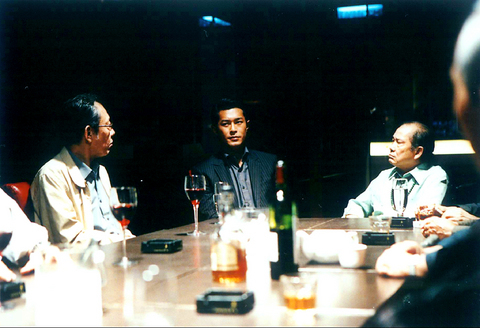
PHOTOS COURTESY OF LONG SHONG ENTERTAINMENT
When Jimmy's business venture is nixed by Beijing, a Chinese inspector tells him that to win government approval he needs to claw his way to the top of the triad group: then the battle commences.
Lok and Jimmy dream up cold-blooded schemes to win the prized position at the top of the pile. What the gangsters don't realize is Chinese authorities have everything under control and are, from the shadows, monitoring proceedings and pulling the strings.
Played to a packed house at this year's Hong Kong International Film Festival and invited to the Cannes International Film Festival scheduled to open next month, Election 2 has been hailed as an artistic achievement which excels in its film-noir-style cinema-tography as well as its presentation of violence.
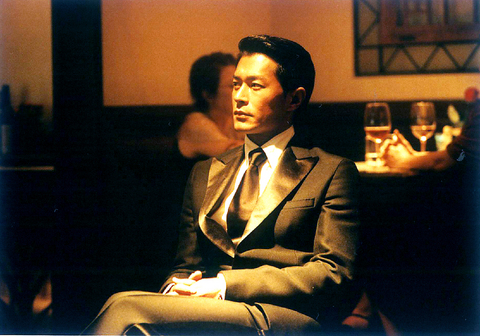
In the film, shadows are omnipresent and a great portion of the action takes place in darkened rooms, which creates a suffocating atmosphere. Characters are half visible in the dark as they sit in cars silently gliding through the night like ghosts, or calmly putting an end to their partners in crime with quiet brutality. The shadows are highlighted to reveal the characters rather than concealing them.
There are no screams or dramatic music to accentuate the violence -- from a distance a man is stuffed inside a duffel bag and thrown into the ocean, an aging triad boss is repeatedly pushed down the stairs until he dies. The tension and violence mount as the plot reaches a chilling climax, one which makes the murder of Big D (Tony Leung Ka-fai) in the first film look like a children's movie.
Election 2 is as much about the triad members' violent life as it is about Hong Kong itself. The gangsters' struggles with Chinese officials make clear the film's political undertones. Though lawless and savage, the triads hold tightly to their supposedly democratic traditions. But, when they attempt to set up shop in China, the electoral system is the first thing that must go.
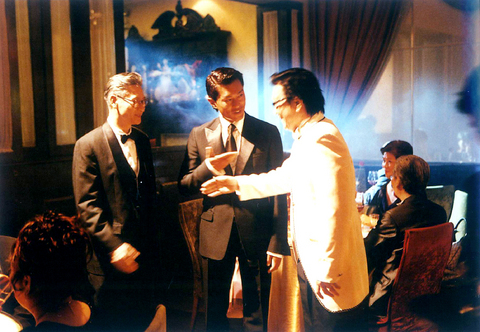
"In the shadow of this ambiguous giant called China, what does it mean to be a Hong Konger? Does being a Hong Konger still have its relevance today?" director To said.
Critics say China has violated its promise of semiautonomy for Hong Kong when in 2004 it said the territory would not be allowed full democracy by 2008.
To's answer seems to be a bleak one. As Jimmy is informed by his wife that they are going to have a baby in the final scene, the young entrepreneur stares out at the wilderness that is soon to be dotted with Chinese shopping malls, and like many of Hong Kong's citizens, he looks at the changes with fear and confusion and is at a loss as to what the future holds for the former British colony.
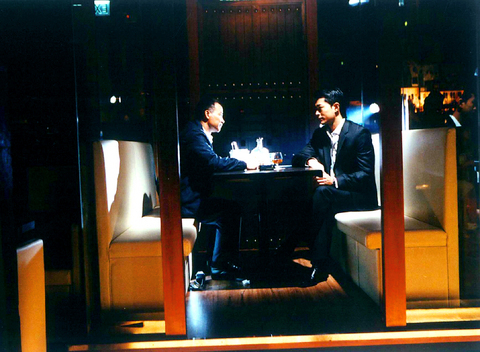
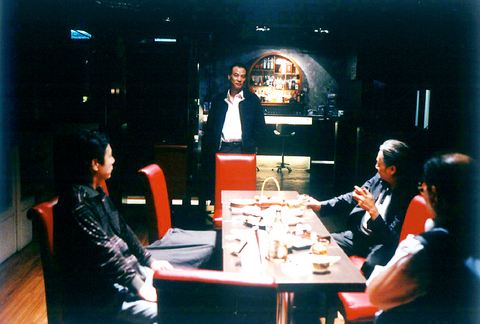
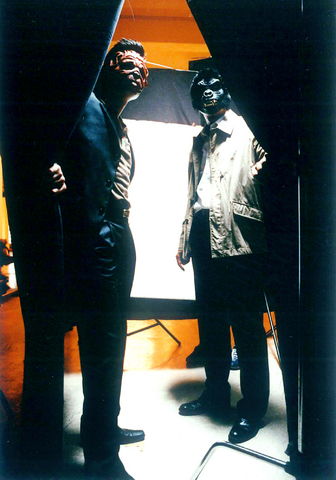

Exceptions to the rule are sometimes revealing. For a brief few years, there was an emerging ideological split between the Democratic Progressive Party (DPP) and Chinese Nationalist Party (KMT) that appeared to be pushing the DPP in a direction that would be considered more liberal, and the KMT more conservative. In the previous column, “The KMT-DPP’s bureaucrat-led developmental state” (Dec. 11, page 12), we examined how Taiwan’s democratic system developed, and how both the two main parties largely accepted a similar consensus on how Taiwan should be run domestically and did not split along the left-right lines more familiar in

As I finally slid into the warm embrace of the hot, clifftop pool, it was a serene moment of reflection. The sound of the river reflected off the cave walls, the white of our camping lights reflected off the dark, shimmering surface of the water, and I reflected on how fortunate I was to be here. After all, the beautiful walk through narrow canyons that had brought us here had been inaccessible for five years — and will be again soon. The day had started at the Huisun Forest Area (惠蓀林場), at the end of Nantou County Route 80, north and east

Specialty sandwiches loaded with the contents of an entire charcuterie board, overflowing with sauces, creams and all manner of creative add-ons, is perhaps one of the biggest global food trends of this year. From London to New York, lines form down the block for mortadella, burrata, pistachio and more stuffed between slices of fresh sourdough, rye or focaccia. To try the trend in Taipei, Munchies Mafia is for sure the spot — could this be the best sandwich in town? Carlos from Spain and Sergio from Mexico opened this spot just seven months ago. The two met working in the

This month the government ordered a one-year block of Xiaohongshu (小紅書) or Rednote, a Chinese social media platform with more than 3 million users in Taiwan. The government pointed to widespread fraud activity on the platform, along with cybersecurity failures. Officials said that they had reached out to the company and asked it to change. However, they received no response. The pro-China parties, the Chinese Nationalist Party (KMT) and Taiwan People’s Party (TPP), immediately swung into action, denouncing the ban as an attack on free speech. This “free speech” claim was then echoed by the People’s Republic of China (PRC),